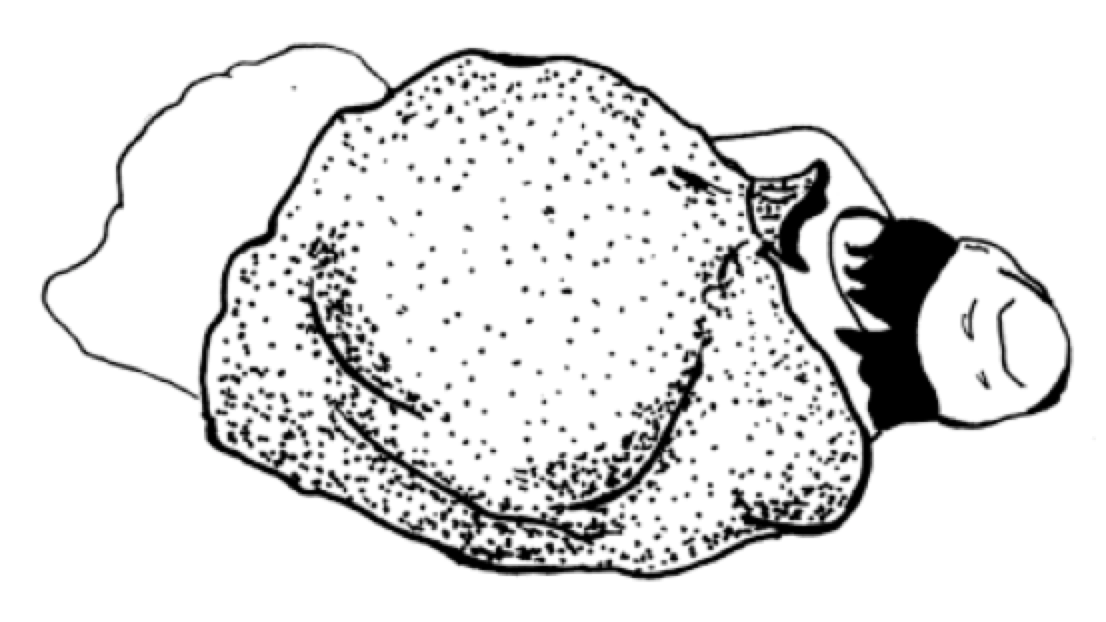
A man in the crowd asks Jesus to tell his brother to divide the family inheritance with him. Jesus’ response is a warning. He says:
Take care! Be on your guard against all kinds of greed; for one’s life does not consist in the abundance of possessions. Luke 12:15
Jesus illustrates what he means in a parable about a rich fool who had such a large harvest that he planned to tear down his barns and build larger ones to house his produce. Then he could spend the rest of his life relaxing, eating, drinking, and being merry. Unfortunately, that night his life was demanded of him. Luke 12:16-23
There are many different ways to interpret this parable. Jesus doesn’t respond directly to the man in the crowd. Instead Jesus delves into our relationship with our possessions. The overriding theme of this parable is the folly of greed and the hoarding of one’s possessions.
The rich man is neither a bad man nor a good man. Why do I say that? He did not cheat or steal from anyone. He did not mistreat his workers. Yet Jesus calls him a fool. Why? Could it be that he lives solely for himself. So what is wrong with that? What is missing in his thinking is that his and our physical lives are on loan to us. He was rich but not rich towards God. He failed to understand that the only possessions worthy of striving for are those death cannot take away. In fact, covetousness is a form of idolatry that replaces God with material things when in fact our lives should be a preparation for the life to come.
Many people are like the rich man who work hard, save their money, and plan for their retirement so that they can live independently and not be a burden to family and society.
So let us ask ourselves what would you do if you were rich like the farmer or if you won the lottery?
Let’s dive a little deeper into this matter and begin with lottery winners.
- In 1998, Gerald Muswagonwon won the $10 million Super 7 Jackpot in Canada. “He bought several new vehicles for himself and friends, purchased a house that turned into a nightly ‘party pad’ and often celebrated his new lifestyle with copious amounts of drugs and alcohol.” He poured money into a logging business that failed and was reduced to manual labor. He hanged himself in 2005.
- Then we have the recent report in Greenwich Time where TV star Judge Judy Sheindlin of Greenwich just bought a $9M Newport, R.I., mansion. In 2007, she and her husband spent $13.2M for a Greenwich property on which they built a 17,000-square-foot mansion. The Sheindlins also own two properties in Naples, Fla., one in Manhattan, and one in Los Angeles.
What do you think of these true-life stories?” How are they similar and dissimilar to the rich farmer?
Now let us compare their stories to Leo Tolstoy’s 1886 short story “How Much Land Does a Man Need?” You probably know this story. It tells us about Pahom, a peasant farmer who becomes obsessed with owning more and more land. He even boasts that with enough land he would not even fear the devil himself. One day Pahom learns he can acquire from the Bakshirs all the land he can mark off from sun up to sun down for 1000 rubles provided he returns to his starting point before the sun sets. If he doesn’t get there in time, he will lose his 1000 rubles. In his covetousness, he tries to encircle and place markers on 35 miles of land, some of which he plans to sell off in the future at a profit. About midday he realizes he has gone too far and asks himself “Will God let me live on this land?” Exhausted, Pahom tries to circle back to the starting point. He reaches it minutes before the sun sets. Then he drops dead. His servant picks up Pahom’s shovel and digs a six-foot grave for him. That is all the land he needs.
Now let us look at two people in particular who take an opposite approach to life’s opportunities.
-
- Recently, in France, a 22-year-old man named Gassama from Mali risked his life to save a four-year old boy dangling precariously on the outside railing of a fifth-floor balcony. Gassama scaled five stories of the apartment building and moved from balcony to balcony to rescue the boy. He thought nothing about his own safety. When he rescues the boy, the crowds below applauded him and dubbed him “Spider-Man”. President Emmanuel Macron invited Gassama to the presidential Elysee Palace in Paris and rewarded Gassama with an offer of citizenship and a job as a firefighter.
- LeBron James, a professional basketball player for the Los Angeles Lakers has set an example of what rightfully deployed money can do to better the lives of others. He recently helped bankroll a new public school called I Promise School for at-risk children in his hometown of Akron, Ohio. Students are given bikes, uniforms, hot meals, and the families of the students will have access to a food pantry. The inaugural class has 240 third and fourth graders. In four years, they expect to have over 1,000 students. LeBron has pledged free college tuition at the University of Akron for every student who graduates from the I Promise School. Also, he has pledged $2 million per year through 2022.
Considering the examples I have just given, we need to ask ourselves where do we stand in relation to the rich man in Jesus’ parable.
- Do we live only for ourselves and families or do we seek to help the needy?
- How does our relationship or absent a relationship with God dictate our behavior?
- Where do we place our trust for today and tomorrow?
- What do we do with our excesses beyond our basic needs of clothing, shelter, food, medical, and health care?
- Are we like the rich man morally and spiritually indifferent to other people’s needs?
- These questions only you can prayerfully think about and answer.
I am personally biased regarding our treatment of refugees, displaced persons, asylum seekers, the homeless, the starving, and the poverty stricken.
I personally do not believe we can be morally and spiritually indifferent to today’s refugees fleeing war, persecutions, evil, genocide, and predatory practices within their home countries. Coming to the aid of refugees may be an inconvenience and costly. But like the rich man in today’s parable, we will be held accountable.
And in this regard, we need to remember that none of us own the land and our possessions. They are on loan to us. They belong to God even though we fight over them. Also, Native Americans were here before the invasion of the white man who took their land.
My take away from this parable and our responsibility towards are neighbors comes from Jesus who said “to whom much has been given, much will be required; and from the one to whom much as been entrusted, even more will be demanded.” Luke 12:48
The prayer of St. Francis of Assisi helps guide us on our spiritual journey. He prays:
Lord make me an instrument of your peace
Where there is hatred let me sow love
Where there is injury, pardon
Where there is doubt, faith
Where there is despair, hope
Where there is darkness, light
And where there is sadness, joy
O divine master grant that I may
Not so much seek to be consoled as to console
To be understood as to understand
To be loved as to love
For it is in giving that we receive
It is in pardoning that we are pardoned
And it’s in dying that we are born to eternal life.
Amen
